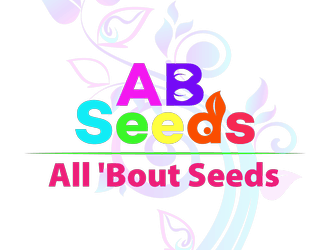CABBAGE-ETHIOPIAN TEXEL-MUSTARD
CABBAGE-ETHIOPIAN TEXEL-MUSTARD
A$3.50
Availability: In stock
Brassica carinata
CABBAGE-ETHIOPIAN TEXEL-MUSTARD is especially good for temperate climates, it is fast growing even at relatively low temperatures. A fairly hardy, mild cabbage flavour, nutritious greens type originating from Ethiopian Mustard. Chopped finely & used in mixed salads or eaten cooked. Fast growing & popular for salad leaves if cut young & tender under 30 cm tall. Also known as Ethiopian kale, Ethiopian mustard & Abyssinian mustard. Seeds can also be crushed and used as a condiment. Highly nutritious, with a good slightly spinachy flavour, generally used as a salad vegetable when young; more mature plants are used cooked. They are reasonably hardy and can be harvested at any stage – crops best between autumn & spring. Sow at regular intervals for a continued supply.
Direct sow 6 weeks before the last frost, or start under protection 3 weeks before that. Start before the first frost for autumn/winter crops. Cabbage likes fertile soil & steady moisture.

Scoville Heat Units (SHU)
Plant Height
60 - 90 cm (2 - 3 feet)
Season of Interest
Spring, Autumn
Temperature Range
10 - 25 °C
Determine / Indeterminate
Annual / Perennial / Biennial
Annual
Frost Hardy / Tender
Hardy
Full Sun / Part Sun / Shade
Full sun or part shade.
Sow Direct / Raise Seedlings
Sow Direct
Soil
Loamy, well-drained soil
pH
6.0 - 7.5
Soil Temperature
10 - 25 °C (50 - 77 °F)
Seed Preparation
No special preparation required
Sowing Depth
1 cm (0.4 inches)
Plant Spacing
20 - 30 cm (8 - 12 inches)
Row spacing
30 - 45 cm (12 - 18 inches)
Watering
Regular watering, keep soil moist
Germination Time (Days)
5 - 10 days
Harvest Time (Days)
45 - 60 days
Good Companion Plants
Beans, Radishes, Carrots
Bad Companion Plants
Strawberries, Tomatoes
Pests
Aphids, Cabbage worms, Flea beetles
Diseases
Downy mildew, White rust
More About Us
ABSeeds is an Australian owned business trading under the umbrella of Direct Compost Solutions which is owned and managed by Victoria Brun.
We as a company endeavor to provide to the public, Organic, Old Fashioned, Heritage, and Open-pollinated seeds that have not been genetically modified.
We purchased the business in November 2018 and renamed it to ABSeeds (All ‘Bout Seeds) to make the title shorter and represent what we hope to achieve with this business in the years ahead.
Seeds that we can’t grow ourselves we will acquire from people who grow for us, or we may purchase seeds from reputable heritage seed companies.





